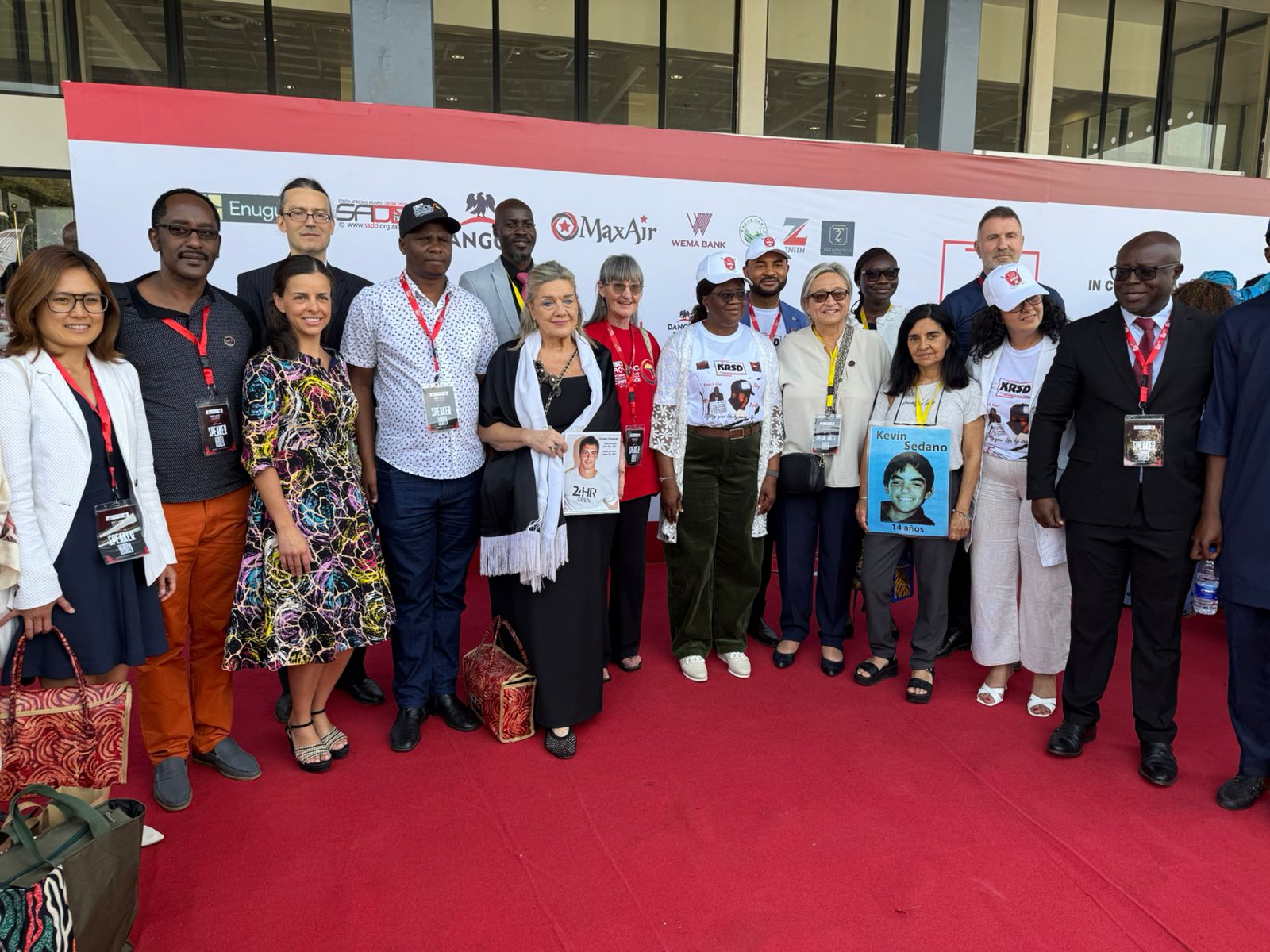
The first conference in Africa dedicated to road crash victims, the International Road Crash Victims Africa Conference (IRCVAC) took place 16-18 November in Abuja, Nigeria.
Co-hosted by the Federal Road Safety Corps (FRSC) in collaboration with Alliance member Kwapda’s Road Safety Demand (KRSD), the conference brought together victims who have lost their loved ones or who themselves have been injured in a road crash and have turned their personal tragedies into advocacy for road crash victims, advancing systemic reforms.
The conference participants were composed of NGOs from the entire region, Government officials including road safety lead agencies from Morocco, Cameroon, Guinea, Mauritania and Cote d’ Ivoire, standard bureau of Ghana, Governors from several States in Nigeria, SSATP, UNEP, UN-Habitat, and WHO, the African Union Commission, emergency responders, youth champions, legal experts, and private sector representatives from Africa and beyond. They all amplified the voice of road crash victims and renewed commitments to fulfill our respective roles in contributing to the reduction of deaths and injuries from road crashes.
IRCVAC participants joined a procession and candlelight ceremony on the World Day of Remembrance, to commemorate and honor the lives lost and survivors, underscoring the urgent need to strengthen emergency response systems and trauma care. The lack of emergency response systems means many road crash victims die before reaching a hospital or suffer debilitating lifetime injuries.
The main conference presentations and panelist discussions highlighted the human, social, and economic burden of road crashes in Nigeria, Africa as a region, and globally as well as the systemic deficiencies that need to be urgently addressed backed with resources. From the Alliance, Chika Sakashita, Director of Global Programs and Patrick Kinyajui, Regional Coordinator Africa, presented on different panels. Chika highlighted the importance of not using the lack of data as an excuse for inaction but utilizing the data that are available. Chika provided examples of Alliance member NGOs collecting local data to fill the gaps in official data to drive actions based on the Safe System approach using the recent examples of Mobility Snapshots and motorcycle helmet testing. Patrick drew examples of NGO advocacy driving low speed environments in Africa , including the implementation of 30 km/h legislation in Senegal, Tunisia, Uganda and Zambia. Patrick acknowledged the Alliance members’ work on the ground advocating for evidence-based interventions and holding decision makers accountable by inviting all members in the audience to stand up. A total of 17 Alliance members attended the conference, participating as speakers and panelists. The IRCVAC also marked a milestone by celebrating the laying of the foundation for the proposed National Trauma Centre, marking a concrete step toward transforming Nigeria’s emergency response and post-crash care landscape.